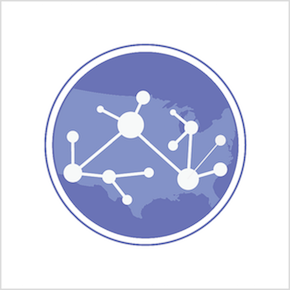Focus on a Network Cluster: Idaho
 2017 was a busy year for the Reproductive Health Access Network, with 11 new Clusters meeting for the first time (in addition to our 7 previous Clusters!). In recognition of the efforts of the Cluster leaders and members, we will highlight different Clusters throughout 2018, starting with Idaho.
2017 was a busy year for the Reproductive Health Access Network, with 11 new Clusters meeting for the first time (in addition to our 7 previous Clusters!). In recognition of the efforts of the Cluster leaders and members, we will highlight different Clusters throughout 2018, starting with Idaho.
RHAP’s Idaho Cluster, led by Sarah, a family physician, and Hannah, a licensed and board-certified women’s health nurse practitioner and midwife, began developing in September of 2017. As a new provider in Idaho, Sarah wasn’t fully plugged into the reproductive health care community in the Boise area; she felt that connecting with providers who were already doing reproductive health work would allow her to better understand the Idaho landscape, as people are generally quiet about reproductive health care—especially abortion care—in the state. Sarah also thought that connecting with other providers doing this work would help her set up referral systems for her patients and inspire her to find ways to offer this care herself. Thanks to Sarah and Hannah’s efforts, there are at least 20 clinicians who have already joined the Idaho Network Cluster. As Cluster leaders, Sarah and Hannah each bring a different clinical perspective to the Cluster, as Sarah practices in the community and Hannah works at a family medicine residency program.
The Idaho Cluster met for the first time in November of 2017. Cluster members were able to put faces to names, sit down with each other to share a meal, and talk about their priorities for expanding access to reproductive health care in the state. “Everyone left the meeting feeling excited about where to go next; there were so many different ideas.” Moving forward, the Idaho Cluster plans to continue building their community of providers and advocates by focusing both on social activism and clinical care. Part of this includes finding ways to bring in folks from other regions of the state. For this Cluster, as well as other RHAP Clusters in larger states, incorporating the use of technologies such as video conferencing and email listservs is a critical piece of their organizing efforts.
Idaho is the first state where the Cluster is co-led by an advanced practice clinician, reflecting both the diversity of the area and the importance of cross-discipline collaboration. There aren’t may reproductive health care providers in Idaho, so it is especially important that anyone who is involved in reproductive health care be a part of this community. The group feels very strongly that including non-physician providers such as physicians’ assistants, nurse practitioners, RNs, and other clinicians is critical to their mission of expanding access to reproductive health care in the state. As Sarah noted, “In general, people who work in reproductive health care—especially in more conservative areas—enjoy being part of a community with others who have shared experiences.” We are grateful to Hannah and Sarah for all of their work, and look forward to supporting the Idaho Cluster moving forward!
